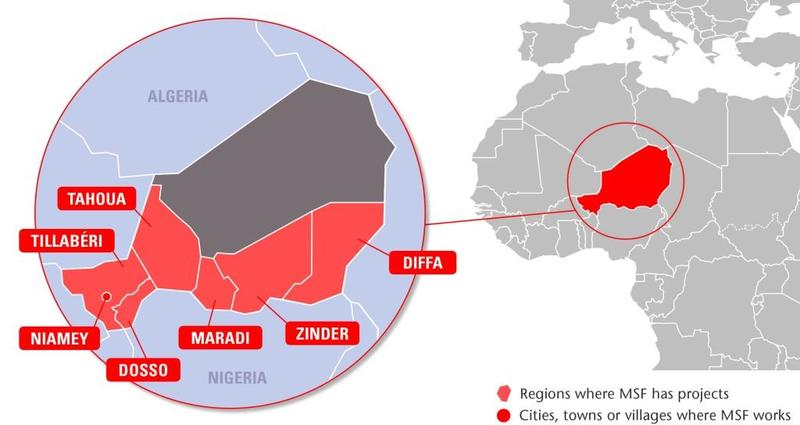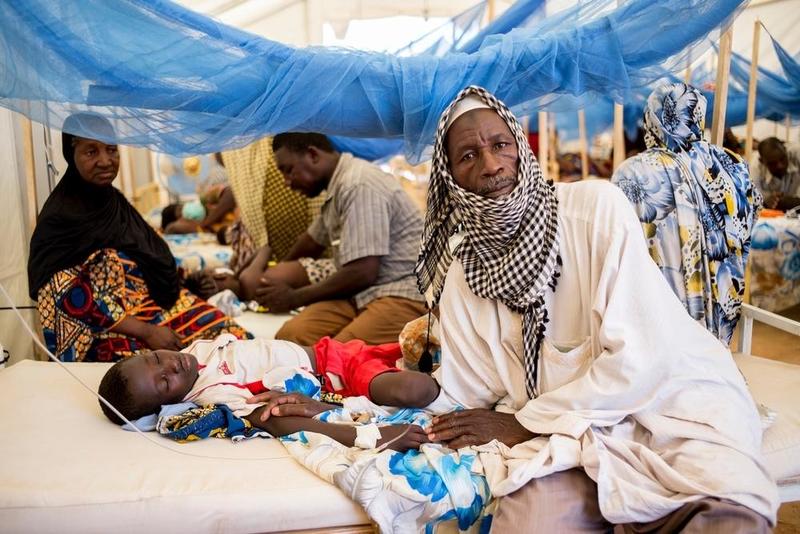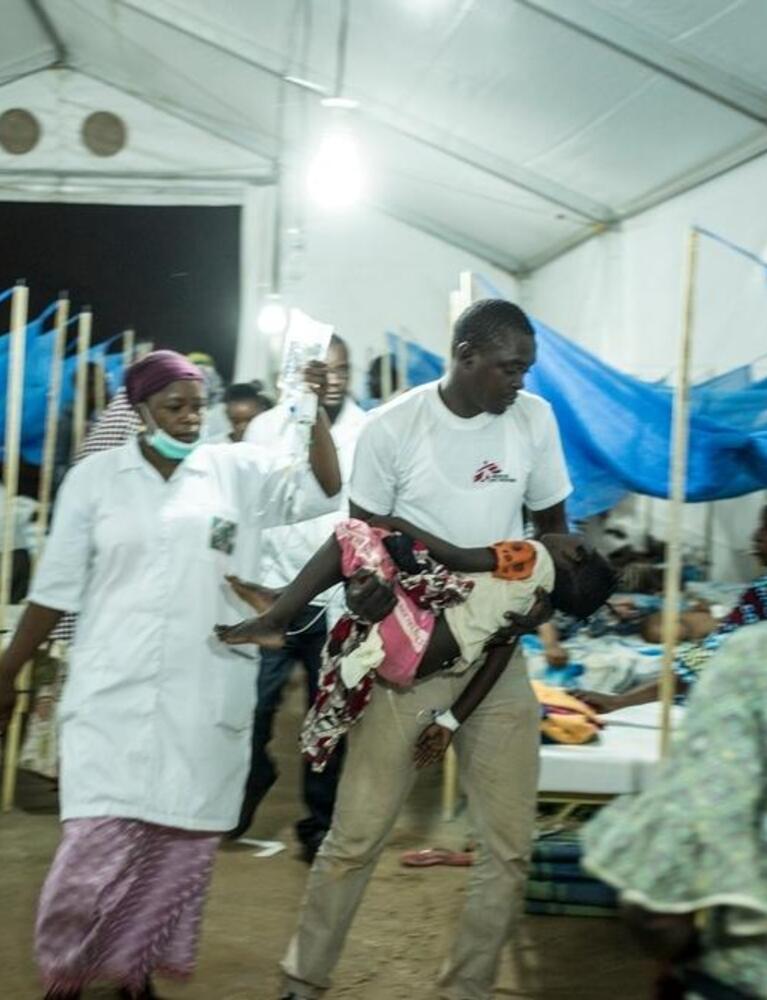Niger is a vast, arid state on the edge of the Sahara.

The country endured austere military rule for much of its post-independence history and is rated by the UN as one of the world's least-developed nations.
The drought-prone country – with a population of just over 18 million – sometimes struggles to feed its people. Its main export, uranium, is prone to price fluctuations and agriculture is threatened by the encroaching desert.
As such, Niger is affected by child malnutrition rates of epidemic proportions – peaking during the ‘hunger gap’, a period between harvests in May and September when household food stocks become depleted and are insufficient to meet nutritional needs.
The hunger gap coincides with the rainy season and a proliferation of malaria-transmitting mosquitoes, a lethal combination for young children: a malnourished child is more vulnerable to diseases such as malaria and a sick child is more likely to become malnourished.
Médecins Sans Frontières/Doctors Without Borders (MSF) first worked in Niger in 1985.
[[Country-Facts]]
MSF’s work in Niger: 2015
Niger was affected by a severe outbreak of meningitis in 2015, and also had to contend with rising numbers of refugees and people internally displaced by violence.
The violent activities of the group known as Boko Haram, in neighbouring Nigeria, caused people to flee over the border into Niger’s Diffa region. There were also direct attacks in Diffa, and the military response to the group caused further displacement.
By the end of the year, over 300,000 returnees, refugees and displaced people in Diffa region were living in precarious conditions without access to healthcare, and vulnerable to diseases and violence.
We provided medical care and water and sanitation activities in Assaga camp, which hosted some 12,000 Nigerian refugees, and in Yebi, where 30,000 people sought refuge.
Teams carried out more than 142,000 medical consultations in the region. In Assaga camp, 2,700 children were vaccinated against measles. We also responded in Gueskerou, Bosso, Chetimari, Gagamari, Assaga, Diffa, Damasak and Djamea, distributing over 2,500 relief kits to refugees and internally displaced people, as well as to host communities where resources were overstretched.
The cholera emergency response that began in December 2014 in Diffa ended in mid-January. We set up two cholera treatment centres in Diffa town and Chetimari, with a total capacity of 130 beds and treated 260 patients.
Meningitis response
There was a particularly severe outbreak of meningitis between April and June, and MSF teams implemented a vaccination campaign in Dogondoutchi and Gaya, Dosso region, reaching over 101,500 children aged between two and 14. A team also provided treatment for nearly 900 patients and distributed meningitis treatment kits to health centres in the region.
Over 4,800 patients were treated in the capital Niamey alone.
Maradi region
MSF runs comprehensive medical and nutrition projects in Madarounfa and Guidan Roumdji departments, providing support for children with severe malnutrition.
Access to safe water is limited in the region, and MSF has been working to regenerate water wells in partnership with the Regional Directorate of Maradi Hydraulics. In 2015, 15 boreholes were rehabilitated.
Tahoua region
MSF continues to provide comprehensive medical and nutritional care for children in the departments of Madaoua and Bouza, supporting a total of 11 outpatient feeding centres as well as inpatient feeding centres and paediatric units in the district hospitals. In Madaoua, a network of community volunteers in 80 villages screened children for severe acute malnutrition; malnourished children were also tested for HIV.

Zinder region
In Magaria, the peak malnutrition season was particularly severe. MSF supported the inpatient feeding centre and paediatric unit of the district hospital, where up to 800 children were hospitalised in October, and seven outpatient feeding centres
An MSF team focused on water treatment at the household level in 89 villages in Dossono health zone, targeting 17,000 children and benefiting 52,300 people overall.
Find out more in our 2015 International Activity Report




